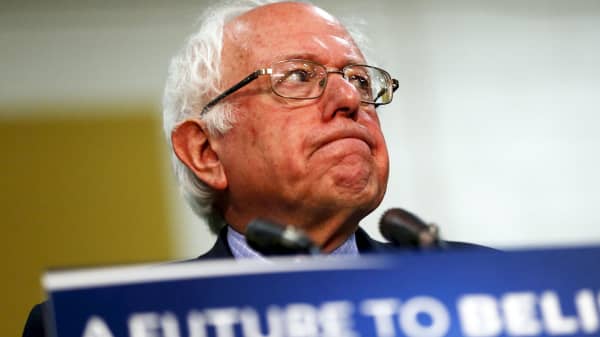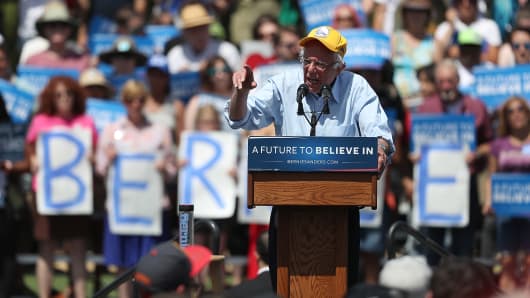In the midst of the media's never-ending horse race coverage of the Democratic Primary, delivered by pundits who rarely leave the comfy confines of cable news green rooms to actually speak with the voters they pontificate about, a long-brewing simmer of struggle erupted.
It started with Democratic voters in 2008; so disheartened and angered by eight years of war, recklessness, and social-Darwinism-masked-as-economic-policy, they delivered Barack Obama the White House on the belief he'd usher in a new era of capital Progressivism.
Disenchanted with Obama and 30 years of trickle-down economics and corporate America's purchase of Washington, D.C., Occupy Wall Street spread in the heart of the corruption only to ultimately fizzle.
And then there was Bernie Sanders.












